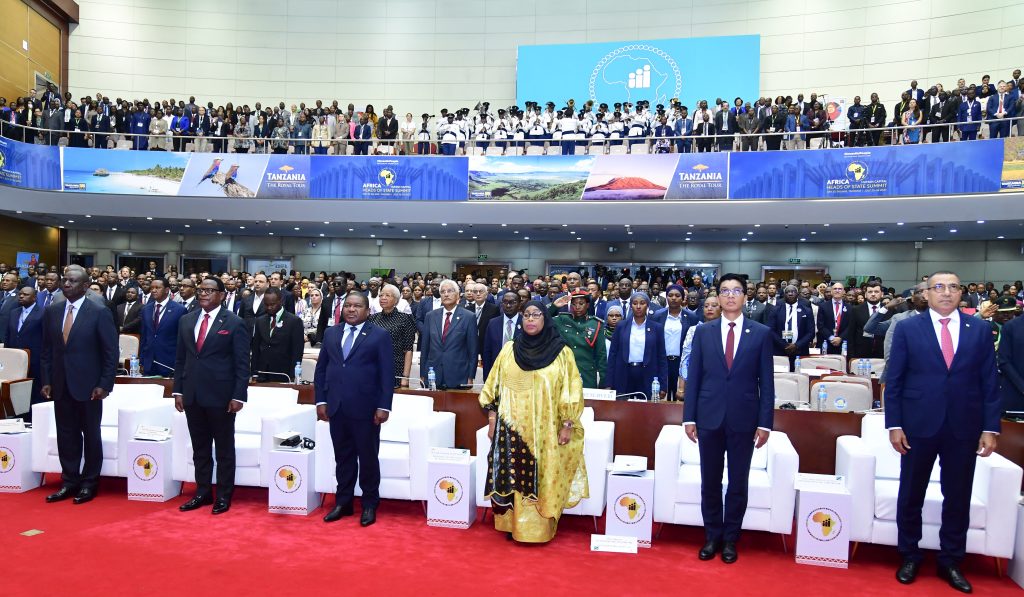A new World Bank economic study posits that a crucial pillar of Tanzania’s future financial prosperity and sustainable growth hinges on human capital investment, addressing the country’s young and adult population.
Drawing from the World Bank’s Human Capital Index (HCI) and human capital wealth data, the Tanzania Economic Update: Human Capital, The Real Wealth of Nations report provides strategic guidance for Tanzania to expediently reduce poverty through human capital investment. The Tanzanian government has participated in the World Bank’s Human Capital Project, from which the HCI is derived. The 2016/17 Household Budget Survey indicates that despite a minor reduction in the poverty rate since 2012, the number of impoverished people has risen. Fortifying human capital is paramount to turbocharge growth and foster inclusivity.
The HCI report posits that a child born in Tanzania today who survives the past five faces a one-in-three chance of stunting, which can significantly impede brain development and future income potential. Though completing primary education is probable, she will likely achieve less than eight years of formal schooling, and her learning outcomes may be modest. Considering her lifespan, her productivity might reach only 40% of what could have been achieved with robust health and high-quality education.
“Tanzania’s current standing on the Human Capital Index doesn’t promise substantial advancements in living standards in the future,” observes Quentin Wodon, World Bank Lead Economist and co-author of the 12th Tanzania Economic Update. He emphasizes the necessity of making a robust investment in the country’s most valuable asset – its people, especially as Tanzania aspires to attain middle-income status in the next few years.
During the recent Africa Human Capital Heads of State Summit, which convened in Dar es Salaam, Tanzania President Samia said that the country has made significant milestones in accelerating human capital development by embarking on eight concrete measures. The measures include establishing early childhood development centers financing various nutrition, neonatal, and antenatal health care programs. The Tanzanian government has reformed and reviewed education policies, curricula, and learning programs to align with current development demands. The summit aimed to deliberate ways Africa can harness its human capital potential in strengthening its economies.
The establishment of the country’s productive social safety net is being coordinated by the Tanzania Social Action Fund (TASAF), with the goal being to reduce poverty and improve access to critical health and education services. Since its establishment in 2000, the program has benefited over one million poor households. At least 731 development projects ranging from infrastructure in education, agriculture, transport systems, health, water, and clean and safe water have been executed. Among others include rolling out the fee-free education policy at the level of early childhood learning development primary secondary education from form one to form six.
Strategies for Education, Health, and Prosperity
The Tanzania Economic Update, aligning with the Human Capital Project recommendations, urges a comprehensive governmental approach to enhance human development results. Several areas of focus for potential investment are highlighted in the report:
Education: Emphasis should be on ensuring that children, especially girls, stay in school while improving education quality. Addressing overcrowded classrooms at the primary level, minimizing secondary-level dropouts, particularly among teenage girls, and augmenting the education system’s capacity, notably at the secondary level, are critical.
According to the World Bank, enrollment in primary schools has reached an impressive 84% in recent years, indicating progress in expanding educational opportunities for Tanzanian youth.
Health: Despite ongoing efforts, the high rates of neonatal mortality and stunting point to a need for increased investment in young children. Comprehensive programs that address several factors contributing to malnutrition while integrating services from sectors like health and nutrition, psychosocial/early stimulation, and improved water and sanitation supply are necessary. For stunting reduction, both nutrition-specific and nutrition-sensitive interventions are crucial.
The Tanzania Demographic and Health Survey revealed that the prevalence of stunting among children under five years of age declined from 42% in 2015 to 34% in recent years, signifying a positive impact on children’s overall development.
Demographic Transition: High fertility rates in Tanzania result in rapid population growth that strains household and government resources. Hastening the demographic transition could enhance all components of the HCI, raise living standards, and decrease poverty. This requires expanding family planning, reproductive health services, and maternal and child health and nutrition services; improving girls’ education and empowerment to delay marriage and childbearing is also paramount. Child marriage elimination and universal secondary education for girls could lower fertility rates by at least a quarter.
Beyond children, the report’s authors also suggest significant investment in adults, forming an integral part of a human development strategy to increase human capital wealth. While Tanzania’s wealth grew by 45% over the past two decades, per capita wealth dwindled from $20,900 to $17,451 between 1995 and 2014, partly due to high population growth, closely linked to fertility rates. In addition to lowering fertility rates, the study emphasizes the necessity to confront the existing gender earnings gap, costing over US$100 billion.
Potential policies should aim to lessen the time women spend in unpaid work and reassign care responsibilities to boost their active hours in the job market, enhance women’s control over and access to productive resources, and address the need and institutional failures that restrict opportunities for women.
“Countries prioritizing human capital investments are more likely to reap the benefits of a dynamic global economy and experience quicker poverty reduction,” states Wodon. “Tanzania would do well to place human capital at the core of its policy dialogue and development strategy.”

